On November 7 and 8, Eurodiaconia, in cooperation with the Reformed Church in Hungary (RCH), hosted a Roma Inclusion Network Meeting in Budapest. The meeting was open to partners across Europe working in Diaconia within the network or part of a member organisation of Eurodiaconia. The meeting highlighted strengthening inclusive education and community building with several presentations from participants.
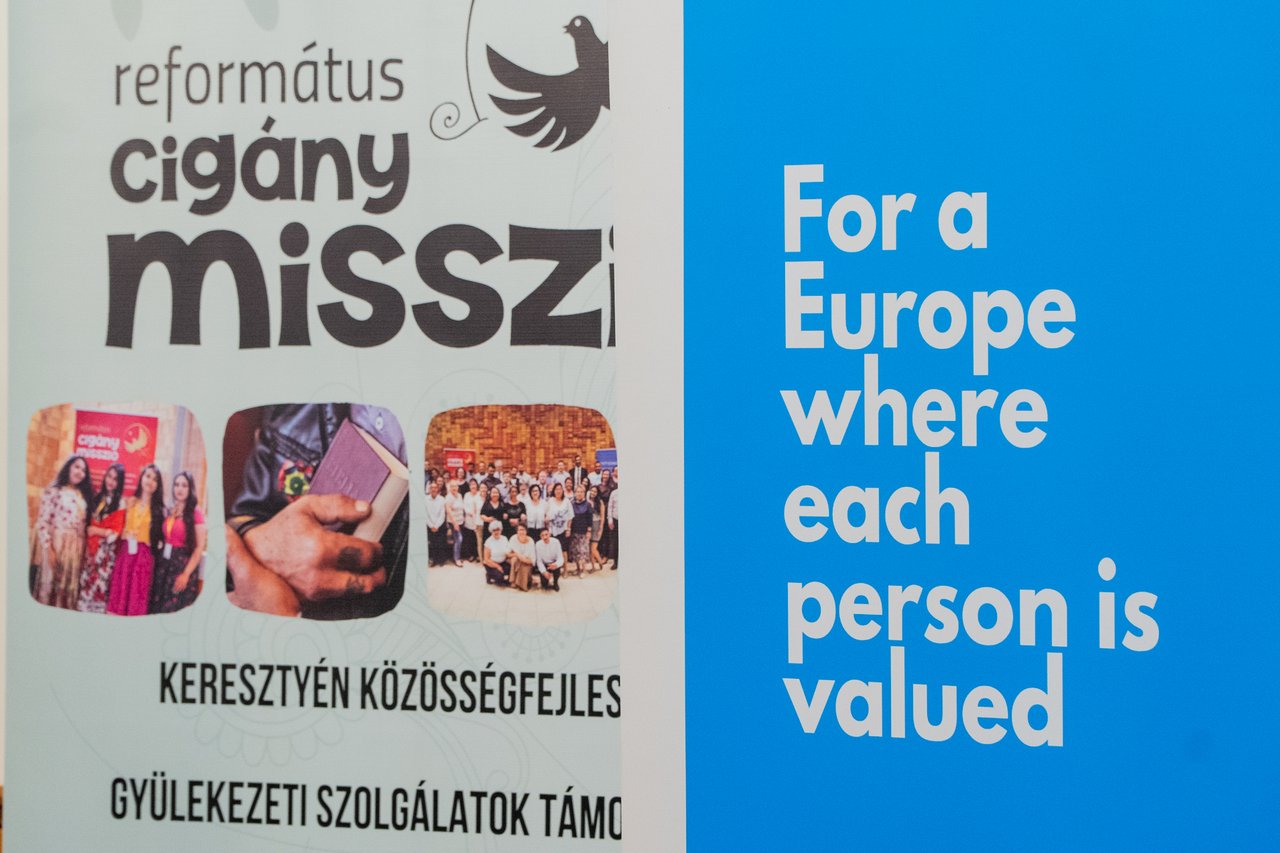
Photo: Roma Ministry
Eurodiaconia, comprised of a membership of 59 national and regional organisations, is a European network of churches and Christian NGOs providing social and healthcare services and advocating social justice. The Eurodiaconia is founded upon its vision “of a Europe where each person is valued for their inherent God-given worth and dignity and where our societies guarantee social justice for all people, including the most vulnerable and marginalised.”
The meeting began with a greeting from Balázs Ódor, Ecumenical Office of the RCH, who underscored the importance of social missions in churches. Ódor recalled the motto of the RCH, “Ambassadors of Christ,” saying that as ambassadors of Christ, it is our work to call on society to be reconciled with God. Within this and the vision of the church, Roma inclusion is an important aspect. He went on to emphasise the importance of Roma inclusion for community-building, reconciliation, and education. Ódor encouraged participants to “look at this gathering as a reminder to stay committed to this vision and mission in our lives.”
Rev. Szabina Pena-Sztojka, the head of the Roma Ministry, gave the devotional. Rev. Pena-Sztojka gave a reading of Mark 12:38-44, wherein Jesus warns the disciples of teachers of the law and considers the widow’s selfless offering in the synagogue. Rev. Pena-Sztojka offered the question: is the temple fulfilling its mission if where there is such splendour and abundance, there is also a widow who must give all of what little she has? She went on to say that for this widow to have so little, it is not only that she does not have a husband, sons, brothers, or a father who in that time would support her, but also that the church failed to support her; the church failed its mission, and that is why she had only two coins. Similarly, Rev. Pena-Sztojka said that we fulfil our mission and call when we are serving the vulnerable and ensuring that marginalised people are uplifted and supported. The passage, she said, “is about questioning ourselves if the marginalised have neighbours who will stand up for them.”
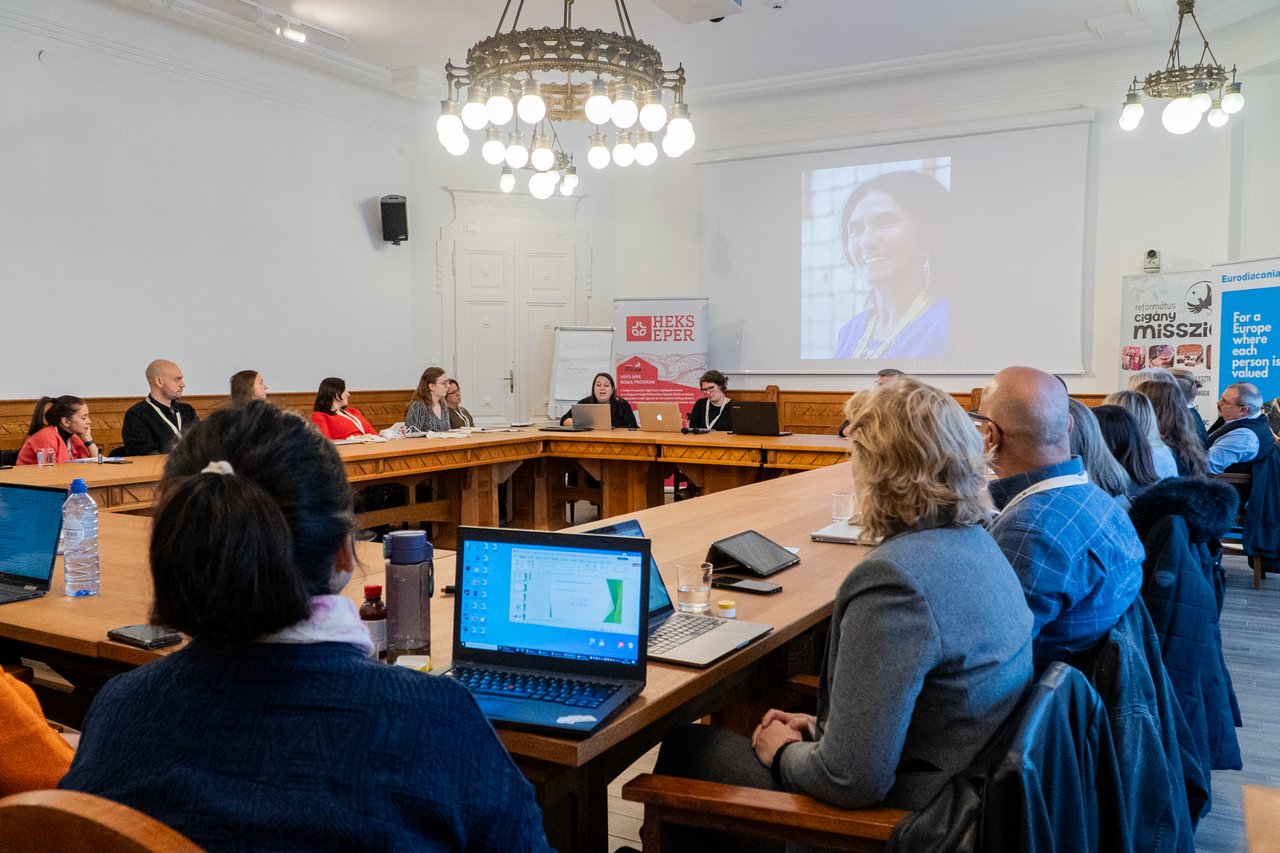
Bettina Baranyi, School Principal of the Magyarcsanád Reformed Primary School, gave the keynote presentation on “Theory and Practice of Inclusive Pedagogy,” with the Magyarcsanád school as the primary case study. Baranyi presented the Pressley Ridge Educational Teaching model, an educational model based on social learning theory, behaviourism, working alliance, and trauma-informed care. This model is typically applied for teaching children from vulnerable backgrounds and, as Baranyi explains, emphasises empathy, child development, trauma-informed care, and effective behaviour management techniques. The Magyarcsanád Reformed Primary School follows a four-step approach. First, it is crucial to have comprehensive training programs for teachers focusing on awareness raising, trauma-informed attitudes, pedagogy, crisis intervention, and aggression management. Second, the school takes an alternative approach to traditional teaching methods. Namely, the school institutes regularly group discussions and roundtables with students at the beginning of the week, day, and end of the day. This, Baranyi says, helps the instructor get to know the student more fully. Third, it is necessary to understand motivation systems in children and to alter your response system to encourage desired behaviour and avoid a punishment-based system. The fourth step involves understanding and implementing effective conflict management. Baranyi emphasised that although these methods can be successful, there is no broadly applicable model which proves effective for every single child. She says the key is having a holistic understanding of the child, their background, psychological development and motivation, and being patient and committed to their success. Overall, this method aims to build academic confidence and capabilities and motivate children to enjoy and feel successful in the classroom, thus encouraging them to continue their education.
Next in the presentations were representatives of the Roma Ministry and the Reformed Church in Hungary. The representatives, including Rev. Szabina Pena-Sztojka, head of the Roma Ministry, Andrea Milák-Ignácz, Leader of the HEKS Congregational Program, Kinga Lakatos, Referent for Congregations of the Roma Ministry and Margit Ignácz, Trainer of the Inclusive School Program, presented on the history, vision, and programs of the Roma Ministry from before the framing of the Roma mission for the RCH to now. Between 2012 and 2013, The RCH conducted research and began to formulate the framework of its Roma mission strategy, and between 2013 and 2021, the social mission grew and developed under the umbrella of the RCH Mission Office. From 2021 to the present, the Roma Ministry operates under the auspices of the Diaconia of the RCH. From 2013 until the present, the Roma Ministry has worked closely with HEKS to develop and implement effective and comprehensive programs to strengthen integration, inclusion, and community-building. The presentation on the Roma Ministry’s Inclusive Schools program highlighted the importance of well-targeted financial and methodological support in schools with higher proportions of Roma students. However, the presenters also underscored the need for multicultural pedagogical approaches in schools with lower proportions, as often, these schools will implement a “colour-blind” approach, which leaves many disadvantaged kids behind. Another important aspect of inclusive schools raised was the need for awareness raising and sensitisation intervention focusing on the importance of and opportunities for inclusion.
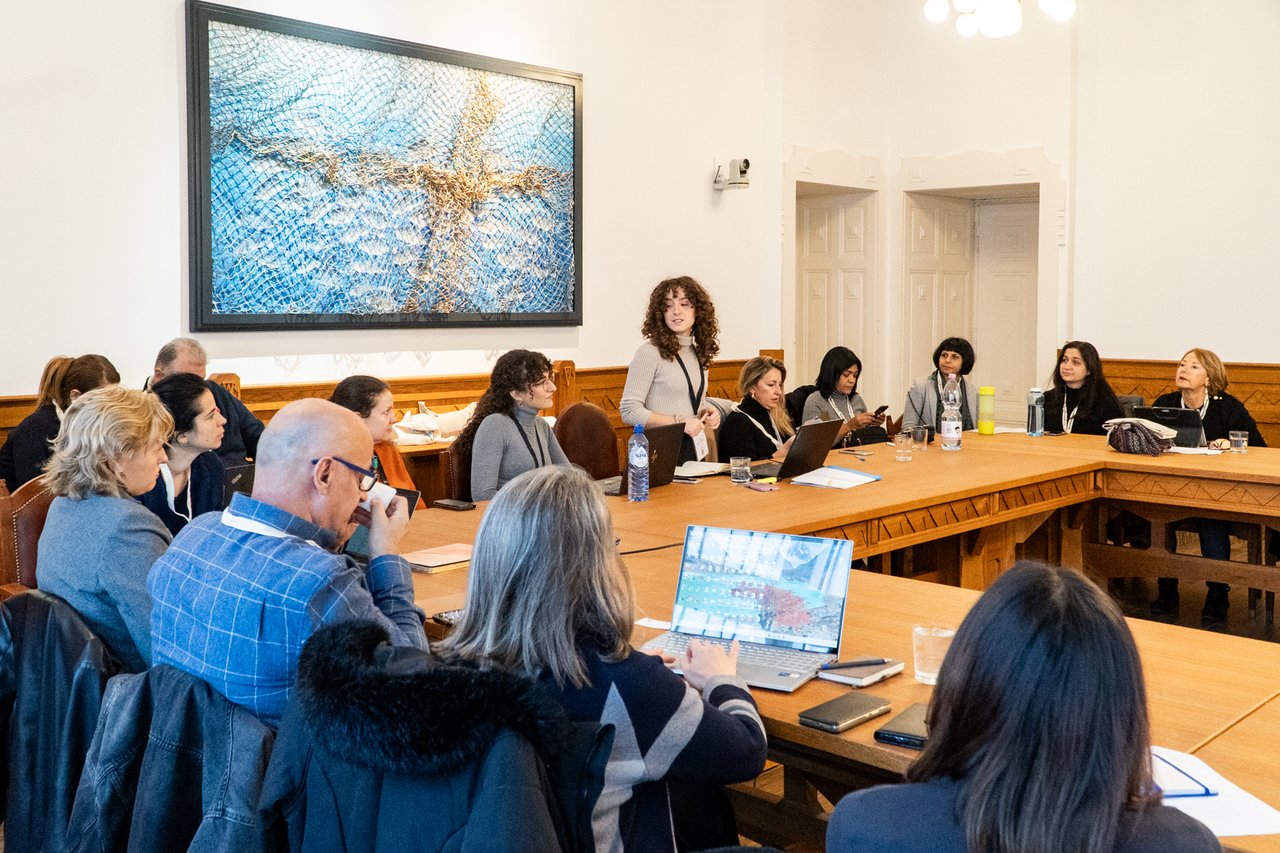
Photo: Roma Ministry
Following the Roma Ministry’s presentation, HEKS/EPER Romania gave a brief presentation on its activities. Specifically, they highlighted their work in schools with young Roma girls through education, career counselling, and workshops. The program combines group and individual counselling for young girls, mother-daughter workshops for 4th and 5th graders to encourage familial cohesion and support, visits from special guests, direct cooperation with schools and companies, and study trips to companies. The goal, the presenters said, is to encourage young girls to continue with their education as well as to pursue a career afterwards to prevent early dropouts. From qualitative results, the program has led to increased self-confidence and increased motivation to continue education, and also counselling sessions offer a safe space to open up about personal situations.
Next, presenters from Serbia shared their community mobilisation programs, emphasising a participatory approach. This means that the school directly includes teachers, parents, students, and pedagogical assistants within local institutions in order to keep all participants included and informed. The program also involves comprehensive intercultural and antidiscrimination trainings for teachers and staff. In addition, there is a mentoring and tutoring aspect that involves volunteers and peer educators who perform individual and group work. The goal here is to develop child potential and capacities with the aim of preventing early dropout and supporting the continuation of education. Overall, the program aims to create a safe and stimulating environment for all children.
The Thursday program also included a study visit to the Morning Star After School Program (Tanoda) – Kecskemét. The Tanoda Program started informally from Church funds and later joined the state-funded after-school system in 2019. The school is located in an area of the city where many families are in vulnerable situations, offering a secure and inclusive environment where children can build friendships and develop a sense of community. The program focuses on developing social skills for children and offering school support, including tutoring, orientation, homework support, etc. The common goals of the program are to share Christian values and to strengthen the relationship of Roma and non-Roma communities in the congregation of Kecskemét. The members of the Roma team provide this service from a diaconal perspective founded on equality and partnership.
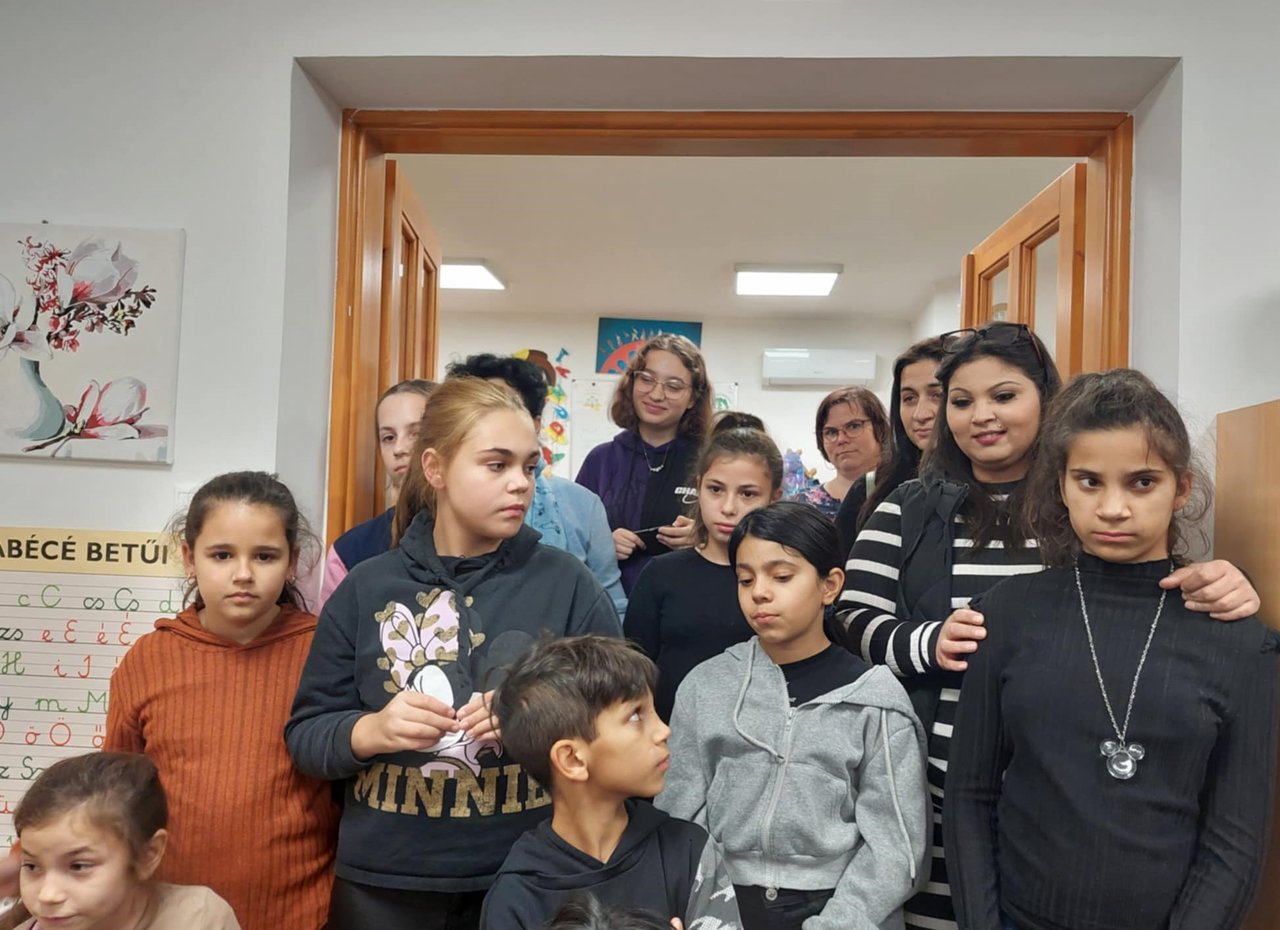
Photo: Roma Ministry
On Friday, the representatives of Eurodiaconia presented developments from the new European Commission, including the appointment of two new commissioners: People, Skill, and Preparedness, and Preparedness Commissioner-designate Roxana Mînzatu, Crisis Management and Equality Commissioner-designate Hadja Lahbib. These appointments are important because of proposed anti-racism strategies, safeguarding policies, rights of minorities, anti-poverty strategies, equal access to essential protections, and services addressing the root causes of poverty. The presentation highlighted how intersectional each issue is and how it relates to the work of Roma inclusion. The recommendations of Eurodiaconia on this front included highlighting and implementing cross-cutting approaches to ensure anti-Roma prevention is integrated across all relevant sectors. Furthermore, the representatives presented the new focus across member states on education, reducing segregation in schools, supporting school retention rates, and enhancing quality, inclusive education. The recommendations of Eurodiaconia included focusing on increasing access and participation in quality, inclusive, and desegregated education, improving retention rates and reducing underachievement. Furthermore, Eurodiaconia recommends enhancing integration into the labour marker, ensuring access to housing and essential services, and increasing health literacy and awareness.
Kirkens Bymisjon from Norway presented on their project to increase public knowledge and sensitisation regarding Roma in their communities. The goal here is to increase engagement around anti-Roma racism and the inclusion of Roma individuals in anti-Roma racism work. Their work also includes a political advocacy aspect that involves getting the anti-Roma racism on the agenda and in the discussion. The group presented on their lessons learned from their programs, highlighting the complexity of identity across different contexts. From this, the group shared that there is no good or bad way to conduct your advocacy work, “there is not miracle recipe to ensure the best results,” and that you must always adapt your work to different target groups and different contexts. The group shared that many times the progress of their work was slow and difficult to discern, but that many important changes occurred internally through a continuous process of reflection and adapting their approach and working methods.
In the closing session, the participants separated into 6 thematic groups to discuss aspects of the guidelines for tackling anti-Roma racism: Changing the Narrative, Promoting Solidarity in Diversity, Fostering Inclusive Church Communities, Increasing the Space for Roma Self-determination, Raising awareness of Roma culture and Roma history, and Coordinating advocacy actions. As a plenary discussion, the groups discussed challenges, practical strategies, and the feasibility of the proposed recommendations as they related to the group’s theme and their own contexts.
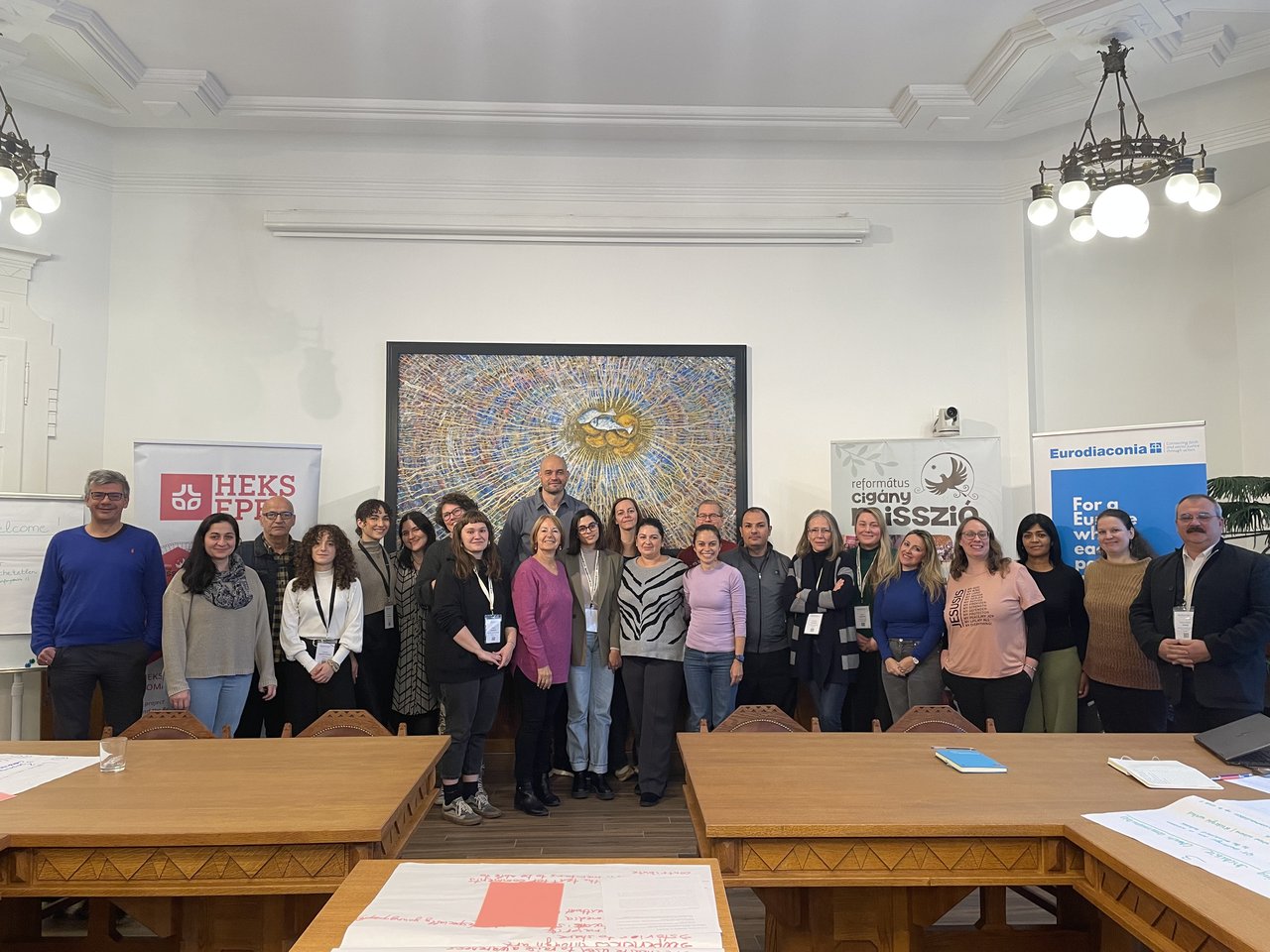
Photo: Roma Ministry
The Eurodiaconia Roma Inclusion Network meeting demonstrated the importance of gathering representatives among the network to share their experiences, lessons learned, and good practices and contemplate areas of shared interest, success, and difficulty. The opportunity to share the varieties of inclusion work across a multitude of contexts is valuable and strengthens knowledge sharing among the members of the Eurodiaconia network. Moving forward, Eurodiaconia is looking to work with network partners to refine and enhance its efforts on specific issues concerning Roma inclusion and to represent furthermore in the European Institutes the values and experiences that Christian engagement can bring into this field.